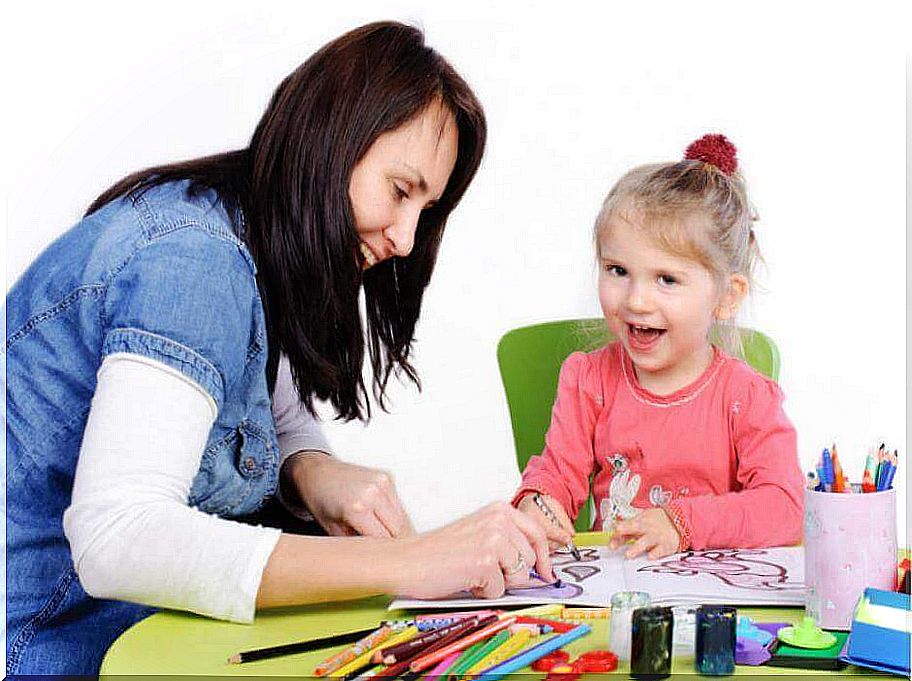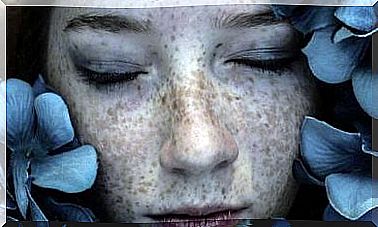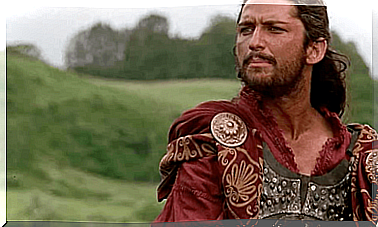Psychopedagogue And Psychologist: Differences And Characteristics

One of the most frequent questions in psychology consultations is related to the doubts that parents face in raising their children. Most of them do not require therapy, but simply a professional response that mitigates parental uncertainty. In these cases, we find that many parents do not know exactly which professional to turn to, a psychologist, a pediatrician or a psychopedagogue.
Most parents usually go to a pediatrician to rule out, but it may make more sense to go to a specialist child psychologist. Others, however, go to school for help and find that the psychologist is usually more focused on the problems of formation and development of children. And, in the centers that have it, the figure of the psychopedagogue is also at hand .
Many people continue to confuse the work of a psychologist with that of a psychopedagogue. It is true that in some aspects the line of work that separates both professions is very fine, but even so we are talking about very different professions. Where these two disciplines come together most is in the academic framework, where they usually work side by side, complementing and combining the different competencies to solve possible problems in the teaching-learning processes.
Both disciplines study the human being and their ultimate objective is intervention, hence in part the difficulties we find when differentiating them. Throughout this article we will list the main differences and similarities of these professions that have been so closely linked since their inception. In fact, in the composition of the two words we can find the same morpheme: ” psycho “.
The main difference between psychology and psychopedagogy is that psychology has a broader vision that involves all aspects of life, while psychopedagogy pays specific attention to the learning process.

Professional competences in different work areas
The psychopedagogue acts at different points, such as orientation and psychopedagogical intervention. Fields in which a set of knowledge, methodologies and theoretical principles come into play that enable the execution of preventive, corrective or support actions, from multiple models, areas and principles, addressing different contexts.
Within the various areas of psychopedagogical intervention , the orientation in teaching-learning processes is located, which has focused its attention on the acquisition of learning techniques and strategies and on the development of metacognitive and motivation strategies. In this approach to the different profiles of the professions we will try to clarify the differentiated guidelines and objectives that the different disciplines have (Palacio, López and Nieto, 2006).
Regarding professional competences , the psychopedagogue acts by preventing, detecting and treating problems related to learning, regardless of the age of the affected person. In addition, it works with educational programs and different techniques to facilitate the teaching process.
On the other hand, the psychologist is a professional oriented towards a more global and at the same time specific knowledge of the person. Their competences are very broad, even if we confine ourselves exclusively to the educational field : they range from the management of emotions and thoughts to the management of interpersonal relationships.

Main differences between the profile of a psychologist and a psychopedagogue
The professional profiles of these two disciplines have common but also differentiating aspects. Specifically, the work of the psychopedagogue focuses on learning, the underlying processes and their behaviors. However, there are exceptions for experts in this discipline who work within companies to improve the quality of life of organizations and employees.
The work of the psychopedagogue is also closely related to integration, support for children and adolescents with difficulties and the monitoring of minors living in troubled homes.
One of the tasks that the psychologist tackles in these areas is the detection of anomalous or conflictive behaviors in children, establishing the treatment and the guidelines to follow for their correction. In the event that they affect areas of the personality, the support of medication or joint work with a psychiatrist may also be required.

In the school environment, the main function of the psychopedagogue is to intervene in the practice of guidance using specific strategies to achieve concrete results. There are two basic models in psychopoedagogical intervention; the clinical model and the consultation model.
Psychologists, for their part, deal with more areas such as affectivity; the evolutionary stages of human development, behavior, personality, vocation, work and social phenomena. Instead, the psychopedagogue specializes, as we have already seen, in the learning processes of a person throughout his life.
If our problem is specific to the educational field, it would be more convenient to use the professional help of a psychopedagogue but if the problem extends to our psychological processes, it would be more appropriate to go to the figure of a psychologist.

Bibliographic references
Bravo, V. (2009). Educational psychology, psychopedagogy and special education.
Castro Solano, A. (2004). The professional competences of the psychologist and the needs of professional profiles in the different work areas. Interdisciplinary , 21 (2), 117-152.
Manzanares Moya, A. (2004). Skills to the psychopedagogue: an integrating vision of the spaces of action in the professional education family. Bordón: Journal of Pedagogical Orientation , 56 (2), 289-302.
Palacio, CR, López, GCH, & Nieto, L. Á. R. (2006). What is psychopedagogical intervention: definition, principles and components. The Agora USB Medellín-Colombia , 6 (2), 215-226.
Pérez Solís, M. (2011). Can a psychopedagogue play the role of the educational psychologist? Professionalization against professional intrusion. Stud. psychol. (Campinas) , 28 (1), 3-13.









